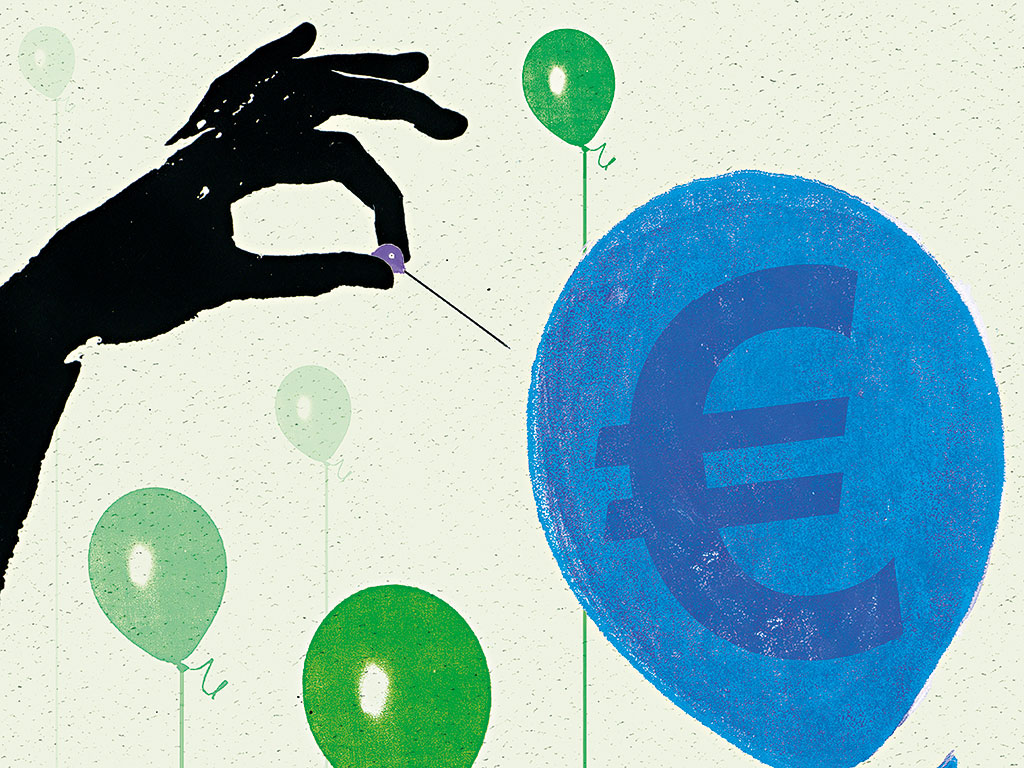
Dark clouds are lowering over Europe’s economic future, as three distinct tempests gather: the Greek crisis, Russia’s incursion in Ukraine, and the rise of populist political parties. Though each poses a considerable threat, Europe, aided by the recent cyclical pickup, is in a position to address them individually without risking more than a temporary set of disruptions. Should they converge into a kind of perfect storm, however, a return to sunny days will become extremely difficult to foresee any time soon.
These questions three
As it stands, the three storms are at different stages of formation. The Greek crisis, having been building for years, is blowing the hardest. Beyond the potential for the first eurozone exit, Greece could be at risk of becoming a failed state – an outcome that would pose a multi-dimensional threat to the rest of Europe. Mitigating the adverse humanitarian consequences (associated with cross-border migration), and geopolitical impact of this storm would be no easy feat.
Countries like Ireland, Portugal and Spain have, through hard and painful work, reduced their vulnerability to contagion from nearby crises
The second storm, rolling in from the EU’s east, is the costly military conflict in Ukraine’s Donbas region. The crisis in eastern Ukraine has been contained only partly by the Minsk II ceasefire agreement, and reflects the deepest rupture in the west’s relationship with Russia since the Soviet Union’s collapse.
Further Russian interference in Ukraine – directly and/or through separatist proxies in Donbas – would present the west with a stark choice. It would either have to tighten sanctions on Russia, potentially tipping western Europe into recession as Russia responds with counter-sanctions, or accommodate the Kremlin’s expansionist ambitions and jeopardise other countries with Russian-speaking minorities (including the EU’s Baltic members).
The third storm – political tumult brought about by the rise of populist movements – poses yet another serious threat. Energised by broad voter dissatisfaction, particularly in struggling economies, these political movements tend to focus on a small handful of issues, opposing, say, immigrants, austerity, or the EU – essentially whomever they can scapegoat for their countries’ troubles.
Already, Greek voters handed the far-left anti-austerity Syriza party a sweeping victory in January. France’s far-right National Front is currently second in opinion polls. The anti-immigration Danish People’s Party finished second in the country’s recently-concluded general election, with 22 percent of the vote. And, in Spain, the leftist anti-austerity Podemos commands double-digit support.
These parties’ extremist tendencies and narrow platforms are limiting governments’ policy flexibility by driving relatively moderate parties and politicians to adopt more radical positions. It was concern about the UK Independence Party’s capacity to erode the Conservatives’ political base that pushed Prime Minister David Cameron to commit to a referendum on the country’s continued EU membership.
Relief required
With three storms looming, Europe’s leaders must act fast to ensure that they can dissipate each before it merges with the others, and cope effectively with whatever disruptions they cause. The good news is that regional crisis-management tools have lately been strengthened considerably, especially since the summer of 2012, when the euro came very close to collapsing.
Indeed, not only are new institutional circuit breakers, such as the European Financial Stability Facility, in place; existing bodies have also been made more flexible and thus more effective. Moreover, the ECB is engaged in a large-scale asset-purchasing initiative that could be easily and rapidly expanded. And countries like Ireland, Portugal and Spain have, through hard and painful work, reduced their vulnerability to contagion from nearby crises.
However, these buffers would be severely strained if the gathering storms converged into a single devastating gale. Given the EU’s fundamental interconnectedness – in economic, financial, geopolitical and social terms – the disruptive impact of each shock would amplify the others, overwhelming the region’s circuit breakers, leading to recession, reviving financial instability, and creating pockets of social tension. This would increase already-high unemployment, expose excessive financial risk-taking, embolden Russia, and strengthen populist movements further, thereby impeding comprehensive policy responses.
Fortunately, the possibility of such a perfect storm is more a risk than a baseline at this point. Nonetheless, given the extent of its destructive potential, it warrants serious attention by policymakers.
Securing Europe’s economic future in this context will require, first and foremost, a renewed commitment to regional integration efforts – completing the banking union, advancing fiscal union, and moving forward on political union – that have been crowded out by a never-ending series of meetings and summits on Greece. Likewise, on the national level, pro-growth economic reform initiatives – which seem to have lost some urgency in the face of overly complacent and excessively accommodating financial markets – need to be revitalised. This would ease the policy burden on the ECB, which is currently being forced to pursue multiple ambitious objectives that far exceed its capacity to deliver sustainably good outcomes regarding growth, employment, inflation and financial stability.
The current focus on the downpour in Greece is understandable. But policymakers should not be so distracted by it that they fail to prepare for the other two possible storms – and, much more worrisome, the possibility that they merge into a single, more devastating situation. Europe’s leaders must act now to minimise the risks, lest they find their shelters inadequate for the extreme weather that could lie ahead.
Mohamed A El-Erian is Chief Economic Advisor at Allianz
© Project Syndicate 2015

